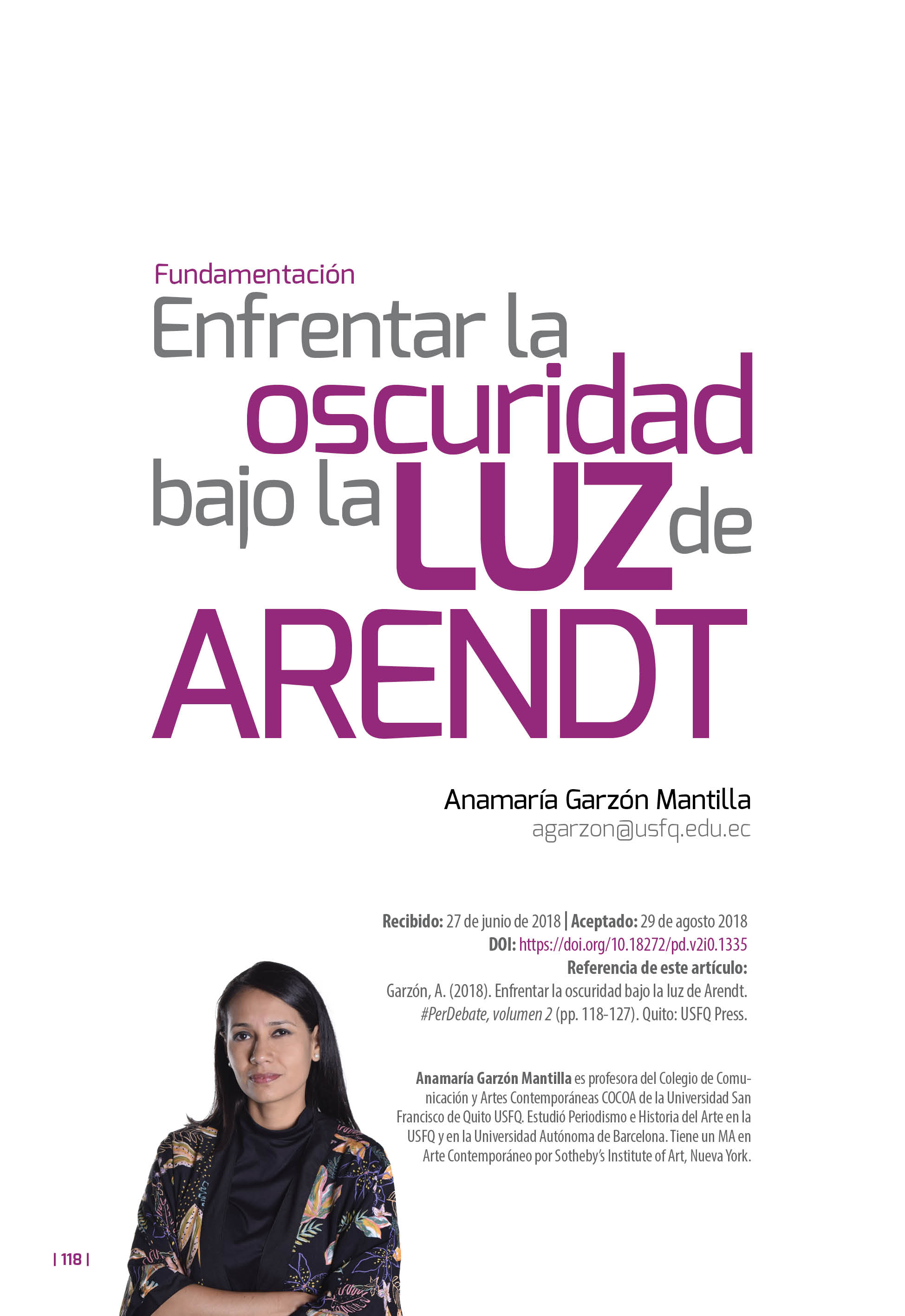To confront darkness under Arendt"™s light
Main Article Content
Abstract
Hannah Arend´s thought is rabidly contemporary. In front of the darkness of our times, Arendt gives us tools to think about totalitarianism, the banal repetitions that perpetuate injustice and the importance of language. This is a brief reflection about the fundamental ideas of the German philosopher who, read from the journalism, gives us keys to understand the importance of questioning the powers, evil operators and hate speeches.
Article Details
References
Agamben, G. (2011). Desnudez. Buenos Aires: Adriana Hidalgo editora.
Arendt, H. (1994). Essays in Understanding. New York: Schocken Books.
Arendt, H. (1996). Entre pasado y futuro. Barcelona: Península.
Arendt, H. (1998). Los orígenes del totalitarismo. Madrid: Taurus.
Arendt, H. (2001). Eichmann en Jerusalén. Un estudio sobre la banalidad del mal. Barcelona: Lumen.
Arendt, H (2006). Sobre la violencia. Madrid: Alianza.
Arendt, H. (2009). La condición humana. Buenos Aires: Paidós.
Arendt, H (2015). Crisis de la república. Madrid: Editorial Trotta.
D"™Entreves, (Fall 2018 Edition), "Hannah Arendt", The Stanford Encyclopedia of Philosophy, Edward N. Zalta (ed.). Recuperado de https://plato.stanford. edu/archives/fall2018/entries/arendt/
Kohler y Saner, eds. (1992). Hanna Arendt-Karl Jaspers: Correspondence, 1926- 1969. New York: Harcourt Brace Jovanovich.
Villa, ed. (2006). The Cambridge Companion to Hannah Arendt. Cambridge: Cambridge University Press

